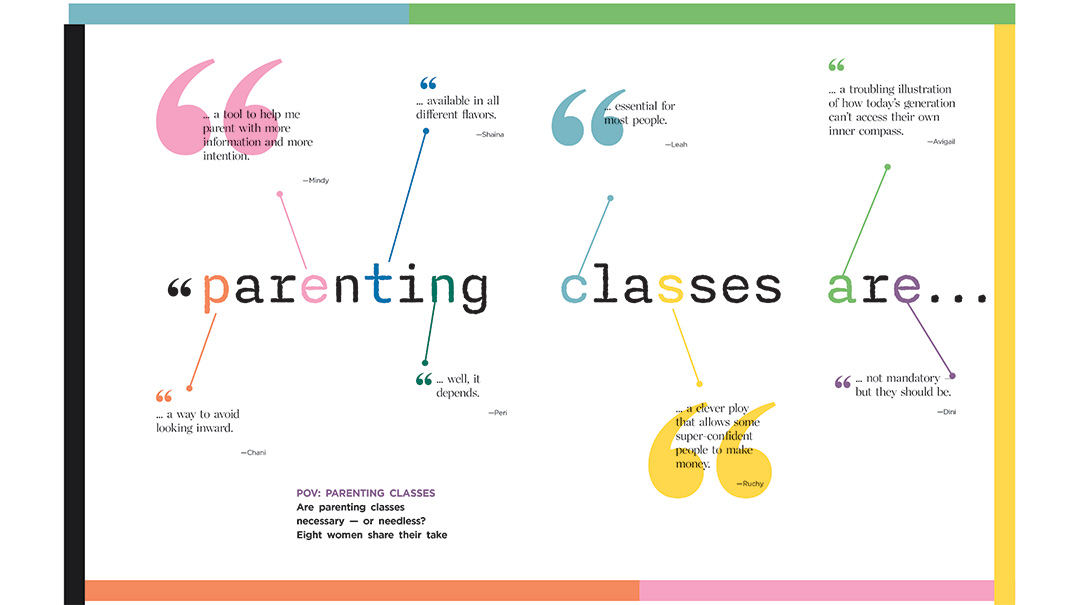Parenting Classes Are…
| August 14, 2024Are parenting classes necessary — or needless? Eight women share their take

Parenting Classes Are...
a troubling illustration of how today’s generation can’t access their own inner compass.
When Hashem paired you up with your children, it wasn’t a fluke. He wanted you to use your kochos to raise them. The kochos He gave them aren’t random, either — they’re there to test you and shape you into a better person.
A generation ago, before myriad parenting classes abounded, people understood that. They worked with the tools Hashem gave them, reaching out for specific, tailored guidance as
necessary. Today, we’re all running to hear from the experts, and we’re all scared to make the wrong move in our parenting.
I took a parenting course. I was overwhelmed with the demands of parenting, and I couldn’t understand why my children would do things I’d never dream of doing to my parents, like talking back or stomping out of the room when they were speaking. “What am I doing wrong?” I wondered.
But the courses are molded in the presenter’s image, using the presenter’s kochos. And while there are always good nuggets, the presenter isn’t you with your kochos, and she doesn’t have your child with their kochos. So you twist yourself into a pretzel trying to be the presenter. (It also doesn’t help that when the presenter shares a story that went wrong, it’s in the guise of being “vulnerable”; so is anything accurate?)
You need to be who you are and parent the child you were given.
My father always says, “You can make mistakes as long as they know you love them.”
That’s the parenting method I’m practicing now. If you’re trying your best and your eye is on the goal of serving Hashem through every interaction, mistakes are also what Hashem sets
up for each person’s journey.
In my opinion, it’s the plethora of classes and advertisements for them that created this need. The power of marketing, if you will. Is there really a societal parenting hole, or have we manufactured one?
—Avigail
Oops! We could not locate your form.






